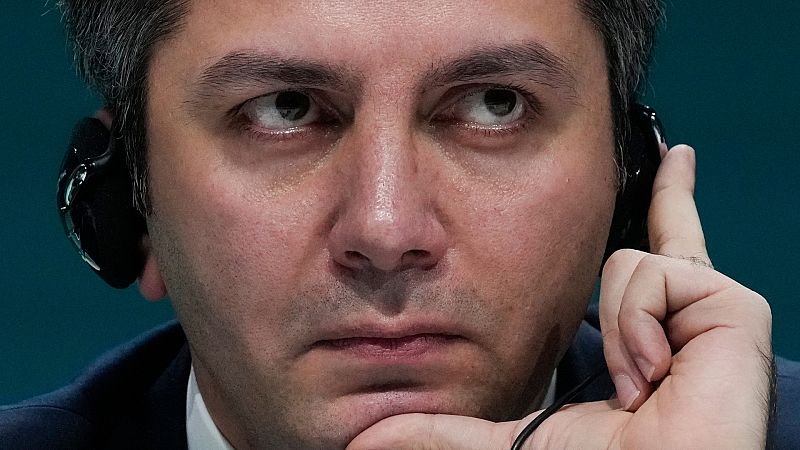Till the midnight hour: Azerbaijan promises late night compromise for climate finance goal

Azerbaijan is putting together a “clear and robust plan” that will outline the new financial architecture for global climate action, the country’s lead negotiator Yalchin Rafiyev told reports in Baku today.
Key items will be the all-important ‘new collective quantified goal’ (NCQG) for climate finance from rich countries to the developing world, and a work programme on mitigation outlining how emissions reduction commitments should be implemented.
“We are aiming to release these texts at around midnight,” Rafiyev said, adding further documents would follow in the morning.
The round-the-clock nature of the negotiations as the COP29 summit nears its scheduled close on Friday reflects the desire of the Azerbaijan presidency to clinch a deal on its watch.
It is also a recognition that the financial framework needs to be in place before countries can put forward the more ambitious climate plans required by February next year, and then proceed to put them into action at COP30 in Brazil next year.
“Parties must work now through some of the most complex issues that we still have to address – confronting different options and finding common ground will be difficult by definition,” Rafiyev said.
How much climate finance, from who and in what form?
The Azerbaijani deputy foreign minister would not be drawn, however, on details of the plan.
He noted in terms of finance what has been made clear during the debates and political posturing on display in Baku since the summit opened on 11 November. The key points to be settled are the donor base and structure of the financing - the mix of direct grants and financing from development banks and the private sector.
Then there is the “quantum” as it has become known in Baku: the headline figure for how much money developing countries can expect.
Earlier talks resulted in rough drafts that ballooned from nine to 35 pages as different blocs demanded their preferred options – for example developing countries want $1.3 trillion a year – be bracketed in the document.
“At this stage, we will definitely not have a huge number of options,” Rafiyev said, promising a shorter, more concise text.
Addressing journalists separately, the head of the EU delegation Wopke Hoekstra was similarly tight-lipped about what Brussels wants to see in the text.
EU officials have repeatedly made clear that they want to see the donor base expanded from a list of developed countries drawn up over two decades ago, before the massive economic expansion of China in particular, but also other emerging economies.
With Azerbaijan under pressure to deliver, Euronews asked Rafiyev on the sidelines of the event whether, for Baku, a bad deal would be better than no deal.
“Of course, if there is a deal, it means it's a reflection of the consensus of the parties then it's already a good deal,” Rafiyev said.
The talks are scheduled to close at 6pm local time on Friday – but recent experience suggests many hours of extended talks are a real possibility.
Today

